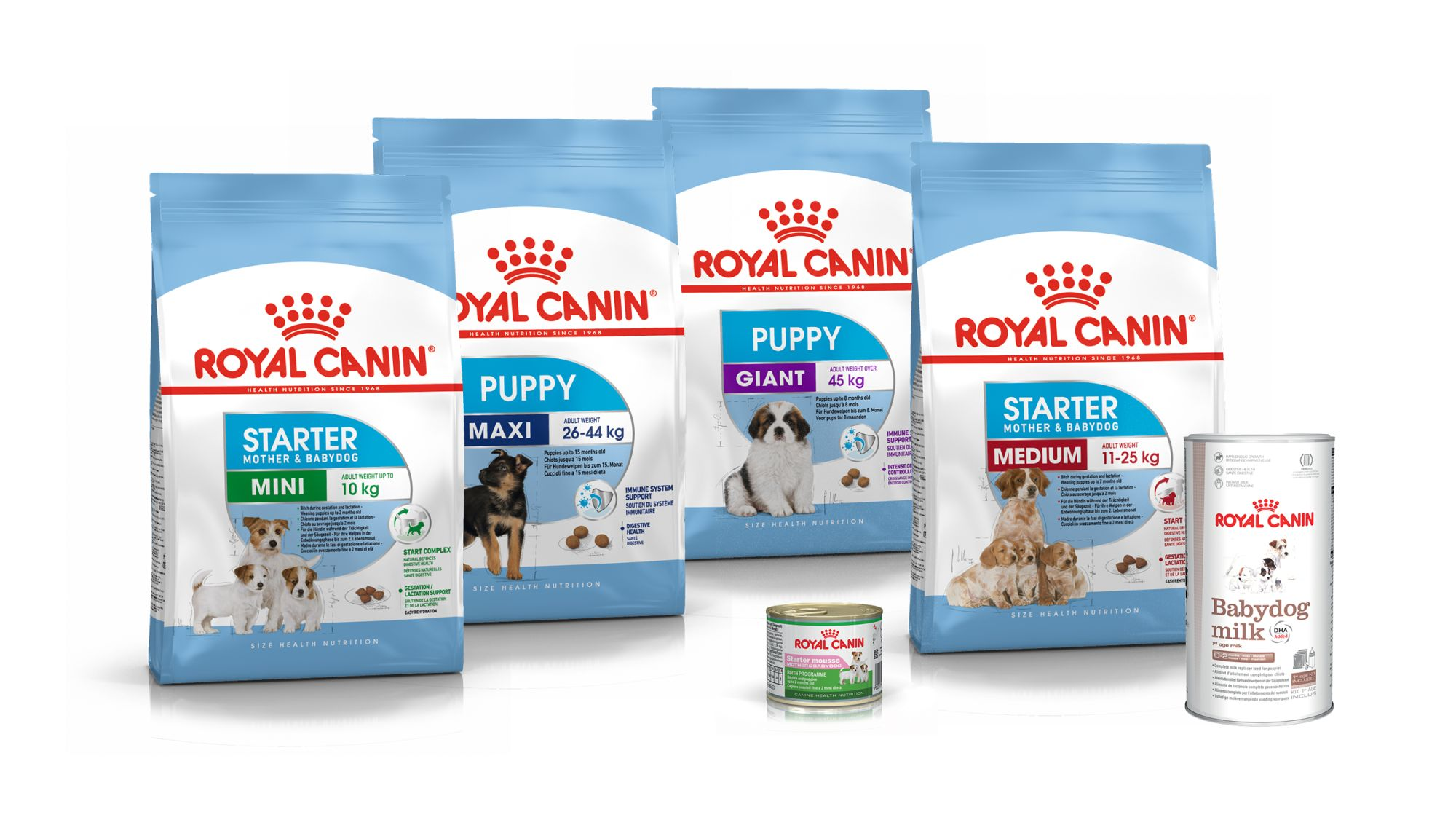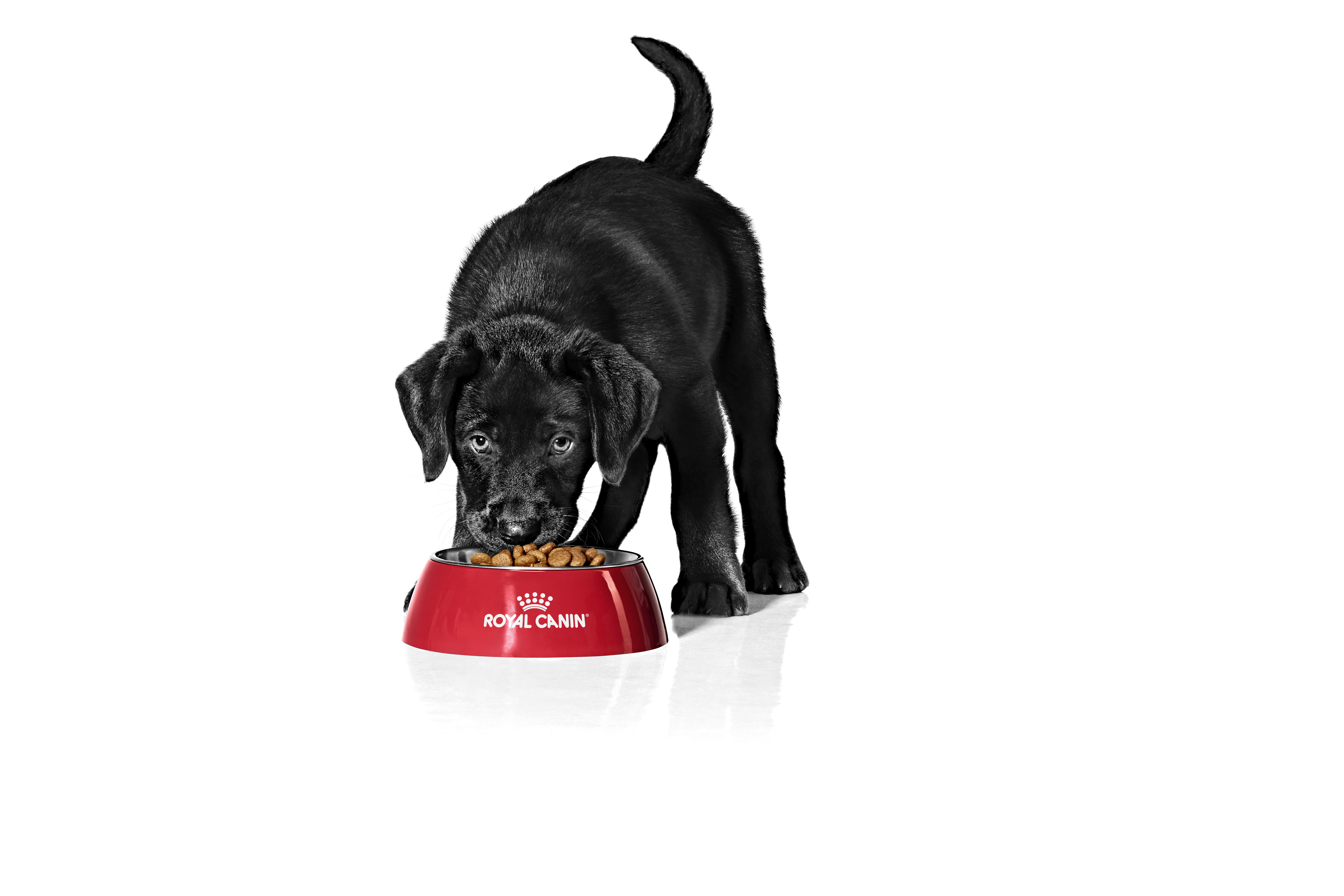Key nutrients for puppies

Sign up to receive R300 off your next Royal Canin Puppy purchase!
New addition to the family?

The developmental needs of puppies
Key requirements of a puppy’s diet
High energy provision to aid growth
Tailored to mouth size and dental structure
Strengthen immature immune system
Aids cognitive, skeletal and cell development
Easily digestible
Carbohydrates
Dietary fibre
Fat
Protein
Protein plays a vital role in healthy puppy development by forming and renewing tissue, muscle and the skeleton. Protein is a precious micronutrient for both the human and animal food chains, and one which should be used as efficiently as possible. Proteins are composed of chains of hundreds (or even thousands) of amino acids.
There are 20 amino acids present in proteins and they are classified into two different types: essential and non-essential. Essential amino acids cannot be made by the puppy's body in sufficient amounts for healthy functioning and development, and therefore must be present in food. Non-essential amino acids can derive from excesses of essential dietary amino acids, but they are still vital to healthy function and should form part of a balanced diet.
Minerals
Vitamins
- Immune and cognitive function
- Cell function and repair
- Reducing inflammation
- Fat metabolism
- Blood clotting
- Brain and liver function
-
There are two types of vitamins: water soluble and fat soluble. A puppy is less able to store water soluble vitamins such as vitamin B, in particular thiamin, and riboflavin in its body and therefore it is critical that these vitamins are part of their regular daily diet.
Carbohydrates
Dietary fibre
Fat
Protein
Protein plays a vital role in healthy puppy development by forming and renewing tissue, muscle and the skeleton. Protein is a precious micronutrient for both the human and animal food chains, and one which should be used as efficiently as possible. Proteins are composed of chains of hundreds (or even thousands) of amino acids.
There are 20 amino acids present in proteins and they are classified into two different types: essential and non-essential. Essential amino acids cannot be made by the puppy's body in sufficient amounts for healthy functioning and development, and therefore must be present in food. Non-essential amino acids can derive from excesses of essential dietary amino acids, but they are still vital to healthy function and should form part of a balanced diet.
Minerals
Vitamins
- Immune and cognitive function
- Cell function and repair
- Reducing inflammation
- Fat metabolism
- Blood clotting
- Brain and liver function
-
There are two types of vitamins: water soluble and fat soluble. A puppy is less able to store water soluble vitamins such as vitamin B, in particular thiamin, and riboflavin in its body and therefore it is critical that these vitamins are part of their regular daily diet.

Water

Maintaining a nutritionally balanced diet

Our Puppy Ranges

Explore more about feeding
Your dogs diet during puppyhood will influence their health and eating habits for the rest of their life. Ensuring your puppy maintains a healthy diet during this stage is vital, so a nutritionally complete and balanced diet tailored towards their specific size and breed can play a vital part.